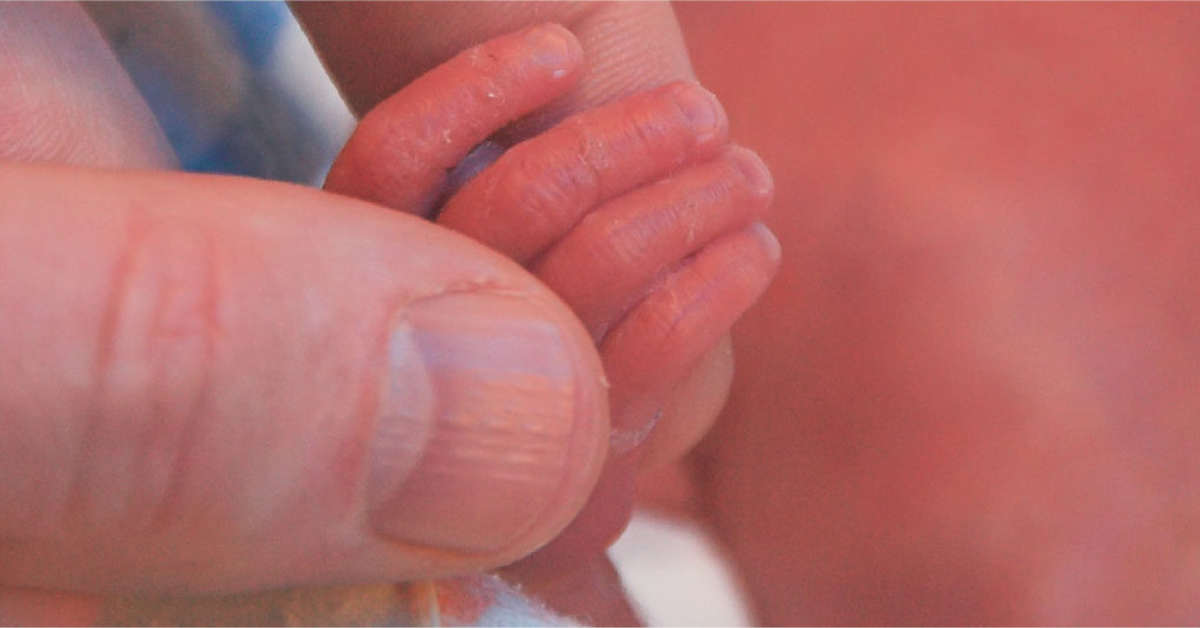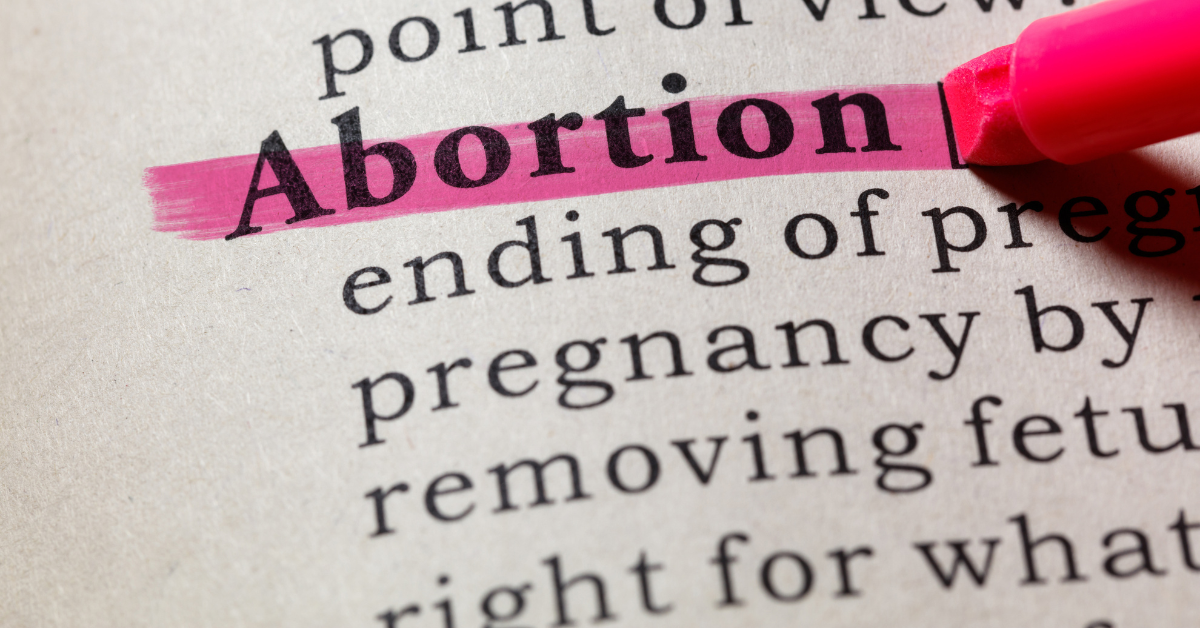
Today we celebrate National Sanctity of Human Life Day, and the weeks leading up to it have been significant.
March for Life 2023
Thousands of pro-life Americans from across the country participated in the 50th Annual March for Life on Friday in Washington, DC. There’s a lot to celebrate this year with the overturning of Roe v. Wade last June and the response of 14 states passing laws either limiting or banning abortions.
Sadly, other states have responded equally strong in favor of death, some allowing abortions up to birth. The state of Colorado went so far as to promote an advertising campaign inviting women to travel from out of state to Colorado for abortions.
As a result of the Roe victory, our work is just beginning. It is now incumbent upon each state to pass abortion laws. Advocates for life are needed to make a difference in our own states, as well as at the Federal level.
Pro-life Legislation
Last week, the U.S. House approved H.R. 26, a bill requiring doctors to provide medical care to infants born alive after an attempted abortion. This is not the first time we’ve tried to pass a bill protecting infants surviving abortion. Four years ago, Congress tried to pass a similar bill, but it was voted down and failed to protect our children.
The 2023 Born-Alive Abortion Survivors Protection Act, which must pass the Senate next, states that an infant born alive after a failed abortion is, “a legal person for all purposes under the laws of the United States, and entitled to all the protections of such laws.” The bill goes on to say that any efforts made to kill an infant born alive should be considered “intentionally killing or attempting to kill a human being.”
That this bill is even necessary is mind-boggling. The fact that it requires legal clarification that killing a live infant is indeed “intentionally killing” a human being is heart-breaking.
Intentional killing and trafficking of newborn body parts
Why was the “intentional killing” of newborn abortion survivors addressed in last week’s legislation?
US Federal laws do not protect babies born alive during abortion procedures. Instead, the law allows abortion providers to leave newborns to die after failed abortions. Some abortion clinics go even further and are involved in intentionally harvesting organs from babies who are born alive.
Again, this is unfathomable. Yet, evidence of the intentional harvesting of the organs of newborn abortion survivors has been exposed time and again… even by Congress during the 2016 congressional hearings. More recent evidence came to light through the Sandra Merritt legal case.
Still, it continues.
Harvesting newborns’ organs seems like a barbaric practice found only in history books describing far less civilized societies.
What would prompt such evil in our country?And, how are these organs being used anyway?
Follow the money
Following the money leads us to the medical industry.
One primary use of newborn’s organs/body parts is the research and development of vaccines, pharmaceuticals and medical disease research. It’s even relied upon to make fetal cell lines that are used to produce some vaccines, pharmaceutical drugs, and even consumer items like cosmetics, food flavor enhancers, and more.
As it turns out, the demand and financial incentives to continue this practice are entrenched in our medical system. Supplying babies’ organs to researchers is an industry in itself, and passing this bill would mean ending an entire industry.
Maybe we’ve been asking the wrong question
The reason many of us scratch our heads and strain to understand how anyone could vote against giving medical care to a newborn (no matter the circumstances of birth) is because we’re asking the wrong question. Instead of asking, “How could anyone withhold life-saving care to a newborn,” we should be asking, “What incentivizes legislators and industries to turn a blind eye to infanticide?”
On one side of the fight (largely driven by religious beliefs or morality), it’s about saving a child; but on the other side, it’s about saving a lucrative industry that undergirds the multi-billion dollar medical industry. Again, let’s follow the money… there are those with religious convictions fighting to save preborn/newborn babies’ lives, or those profiting from the medical and pharmaceutical industries, not to mention the abortion industry itself. It is quite clear where the financial incentive lies.
Consequently, Congress has introduced bills in the past and they have failed… and H.R. 26 may be on the verge of failing too.
If we are to successfully fight for life, we must bring to light these underlying motives for voting against lifesaving legislation, and share this truth with our lawmakers.
How can you help?
Know. Share. Live.
KNOW the truth. Understand the underlying impetus for our country’s failure to pass pro-life legislation
SHARE the truth. Share this underlying reason with others (lawmakers, friends, and family)
LIVE in light of the truth. Make choices with the whole picture in mind (for example, on a personal level, making mindful medical decisions based on your knowledge of products that use ingredients you find morally offensive)
And most importantly, PRAY.
Action Steps
H.R. 26 passed the House and goes to the Senate next, where pro-life lawmakers are not the majority.
Therefore, it’s important that you contact your U.S. senators today. Urge them to protect innocent newborns who survive abortions by supporting the Born-Alive Abortion Survivors Protection Act. We need to pass the bill this time!
Also, consider contacting all members of the Senate Judiciary Committee (those names listed in red below), asking them to bring this bill up for consideration.
The list of senators below is alphabetized by state. Click on your senator’s name to go to his/her email form. If you prefer to communicate by phone, call the US Capitol switchboard at 202.224.3121 and request to speak to your senator.
2023 U.S. Senators
If you experience trouble with any links, you can look up all senators here.
Alabama
Richard Shelby (R)
Tommy Tuberville (R)
Alaska
Lisa Murkowski (R)
Dan Sullivan (R)
ArizonaMark Kelly (D)
Kyrsten Sinema (D)
Arkansas
John Boozman (R)
Tom Cotton (R)
California
Dianne Feinstein (D)
Alex Padilla (D)
Colorado
Michael Bennet (D)
John Hickenlooper (D)
Connecticut
Richard Blumenthal (D)
Chris Murphy (D)
Delaware
Tom Carper (D)
Chris Coons (D)
Florida
Marco Rubio (R)
Rick Scott (R)
Georgia
Jon Ossoff (D)
Raphael Warnock (D)
HawaiiMazie Hirono (D)
Brian Schatz (D)
IdahoMike Crapo (R)Jim Risch (R)
Illinois
Tammy Duckworth (D)
Dick Durbin (D)
Indiana
Mike Braun (R)
Todd Young (R)
Iowa
Joni Ernst (R)
Chuck Grassley (R)
Kansas
Roger Marshall (R)
Jerry Moran (R)
Kentucky
Mitch McConnell (R)
Rand Paul (R)
Louisiana
Bill Cassidy (R)
John Kennedy (R)
Maine
Susan Collins (R)
Angus King (I)
Maryland
Ben Cardin (D)
Chris Van Hollen (D)
Massachusetts
Ed Markey (D)
Elizabeth Warren (D)
Michigan
Gary Peters (D)
Debbie Stabenow (D)
Minnesota
Amy Klobuchar (D)
Tina Smith (D)
Mississippi
Cindy Hyde-Smith (R)
Roger Wicker (R)
Missouri
Roy Blunt (R)
Josh Hawley (R)
Montana
Steve Daines (R)
Jon Tester (D)
Nebraska
Deb Fischer (R)
Ben Sasse (R)
Nevada
Catherine Cortez Masto (D)
Jacky Rosen (D)
New Hampshire
Maggie Hassan (D)
Jeanne Shaheen (D)
New Jersey
Cory Booker (D)
Bob Menendez (D)
New Mexico
Martin Heinrich (D)
Ben Luján (D)
New York
Chuck Schumer (D)
Kirsten Gillibrand (D)
North Carolina
Richard Burr (R)
Thom Tillis (R)
North Dakota
Kevin Cramer (R)
John Hoeven (R)
Ohio
Sherrod Brown (D)
Rob Portman (R)
Oklahoma
Jim Inhofe (R)
James Lankford (R)
Oregon
Jeff Merkley (D)
Ron Wyden (D)
Pennsylvania
Bob Casey (D)
Pat Toomey (R)
Rhode Island
Jack Reed (D)
Sheldon Whitehouse (D)
South Carolina
Lindsey Graham (R)
Tim Scott (R)
South Dakota
Mike Rounds (R)
John Thune (R)
Tennessee
Marsha Blackburn (R)
Bill Hagerty (R)
Texas
John Cornyn (R)
Ted Cruz (R)
Utah
Mike Lee (R)
Mitt Romney (R)
Vermont
Patrick Leahy (D)
Bernie Sanders (I)
Virginia
Tim Kaine (D)
Mark Warner (D)
Washington
Maria Cantwell (D)
Patty Murray (D)
West Virginia
Shelley Moore Capito (R)
Joe Manchin (D)
Wisconsin
Tammy Baldwin (D)
Ron Johnson (R)
Wyoming
John Barrasso (R)
Cynthia Lummis (R)
















